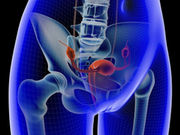Mutations in previously ID’d cancer genes; excess of mutations in genes encoding histone H2A, H2B
MONDAY, Oct. 17, 2016 (HealthDay News) — Carcinosarcomas (CSs) of the uterus and ovary have mutations in cancer genes previously identified in uterine and ovarian carcinomas and in genes encoding histones H2A and H2B, according to a study published online Oct. 10 in the Proceedings of the National Academy of Sciences.
Siming Zhao, Ph.D., from the Yale University School of Medicine in New Haven, Conn., and colleagues used whole-exome sequencing to analyze the mutational landscape of 68 uterine and ovarian CSs. In order to resolve evolutionary histories, they also performed multi-region whole-exome sequencing comprising two carcinoma and sarcoma samples from six tumors.
The researchers found that carcinomatous and sarcomatous elements were derived from a common precursor, which had mutations typical of carcinoma. In addition to previously identified mutations in cancer genes in uterine and ovarian carcinomas, there were an excess of mutations in genes encoding histone H2A and H2B, and significant amplification of the segment of chromosome 6p which harbors the histone gene cluster. Frequent deletions of TP53 and MBD3 were seen, as well as frequent amplification of chromosome segments containing PIK3CA, TERT, and MYC. Mutant, but not wild type, histones increased expression of markers of epithelial-mesenchymal transition, and of tumor migratory and invasive properties. Separate lineages were identified on comparison of the phylogenetic relationships of carcinomatous and sarcomatous elements of the same tumors.
“These findings define the genetic landscape of CSs and suggest therapeutic targets for these highly aggressive neoplasms,” the authors write.
Full Text
Copyright © 2016 HealthDay. All rights reserved.








